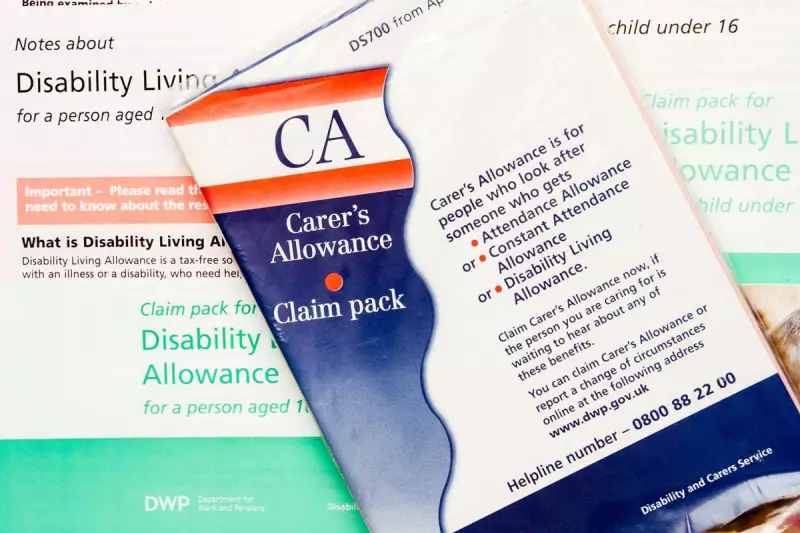
Government Acts on Carer's Allowance 'Scandal' After Decade of Injustice
The government has announced a major review of historic overpayments affecting thousands of unpaid carers across England and Wales, following what charities have described as a decade-long scandal. Around 185,000 carers who received carer's allowance between 2015 and September 2025 will have their cases reassessed, with many expected to have debts cancelled or reduced.
Confusing Rules Created 'Unmanageable Debt' for Carers
An independent review led by Liz Sayce found that unclear and confusing regulations led to many carers unwittingly building up substantial debts. The investigation revealed that carers felt they were "treated as criminals, with resulting feelings of fear and shame" despite simply struggling to understand complex reporting requirements.
The core issue centred on the earnings threshold, which required carers to earn £151 per week or less to qualify for the allowance. Even minor breaches of this limit - sometimes by as little as a few pence per week - could trigger what became known as the "cliff edge" effect, where carers would lose their entire allowance and face repayment demands for substantial sums.
System Failures and Life-Changing Consequences
The review identified several critical system failures within the Department for Work and Pensions (DWP). The way the department treated earnings, particularly in averaging and allowable expenses, was found to be inconsistent and unclear, making it nearly impossible for carers to comply with the rules.
Ms Sayce stated: "My review found that overpayment debt has had major impacts on carers' health, finances and family wellbeing, and been a disincentive to work. This wasn't wilful rule-breaking – it simply wasn't clear what earnings fluctuations carers should report."
The consequences for affected carers were severe, with many facing unmanageable levels of debt that forced some to quit their jobs. The psychological toll was equally significant, with carers reporting feeling criminalised for circumstances beyond their control.
Government Response and Reform Commitments
In a significant move, the government has accepted the vast majority of the review's recommendations. Work and Pensions Secretary Pat McFadden acknowledged the system's failures, stating: "Carers are vital to our communities, and when the system lets them down, we have a duty to put it right. We inherited this mess from the previous government, but we've listened to carers, commissioned an independent review, and are now making good for those affected."
The review's key recommendations include:
- Removing the severe ambiguity that prevented carers from understanding reporting requirements
- Accelerating plans to address the "cliff edge" problem
- Modernising data and benefits processes to make them fairer
- Rebuilding trust between the DWP and carers
- Reclassifying all overpayments caused by systemic issues as non-recoverable
Carer's allowance, currently worth £83.30 per week, is provided to individuals who spend at least 35 hours weekly caring for someone with disabilities who receives qualifying benefits such as Personal Independence Payment (PIP). The earnings threshold has since increased to £196 per week from April this year.
Restoring Trust and Addressing Injustice
Helen Walker, chief executive of Carers UK, welcomed the government's response, describing the move to reassess cases and write off debt as "unprecedented in our view, a righting of a clear wrong." She added: "The issue has been challenging and distressing for many unpaid carers. We are hopeful that this can be the start of rebuilding carers' trust in the system."
Chancellor Rachel Reeves emphasised the government's commitment to supporting carers, stating: "This will be welcome news for thousands of carers failed by the system under the previous government. We will right these wrongs - carers give so much to their families and to their local communities, and they deserve our support."
The review's findings, published on Tuesday 25 November 2025, mark a significant step toward addressing what has been described as one of the most damaging welfare scandals in recent years, offering hope to thousands of carers who have struggled under the weight of unjust debt.






